 | |
| http://www.apeactionafrica.org/what-we-do |
 |
| Shufai my little adopted APE! |
For £30 or $50 per year, less than 60p a week or $1 a week, you can get directly involved in conservation and make a difference where it counts. You can give the great apes a future.
Shufai
 Shufai’s
life almost ended in infancy when he narrowly escaped fatal injury from
the bullets that killed his mother. After months of intensive care and
rehabilitation, Shufai was looking forward to a future amongst a group
of other orphaned gorillas when he was struck down by meningitis and
almost lost his life a second time. After a remarkable recovery he is
now slowly recovering his movement and abilities, as well as his
position amongst his young social group. Watch the early days of his
recovery here.
Shufai’s
life almost ended in infancy when he narrowly escaped fatal injury from
the bullets that killed his mother. After months of intensive care and
rehabilitation, Shufai was looking forward to a future amongst a group
of other orphaned gorillas when he was struck down by meningitis and
almost lost his life a second time. After a remarkable recovery he is
now slowly recovering his movement and abilities, as well as his
position amongst his young social group. Watch the early days of his
recovery here.If you would like to adopt Shufai then complete our online adoption form and we'll do the rest!
Gorillas: the bad news, the good news and what you can do
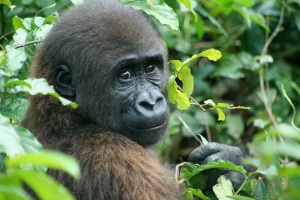
But this week the focus should be on celebrating the life of Dian Fossey, who did so much to conserve these magnificent animals, and to bring an appreciation of their plight to so many of us.
The good news is things are slowly starting to change, and in Uganda and Rwanda, gorillas are seen as an iconic species and locals are working to protect them. At Ape Action Africa, our dream is for Cameroonians to love their gorillas, and that one day, it will be socially unacceptable to eat them.
What Can I Do: Hunting gorillas and chimps is illegal so the meat isn’t openly seen in restaurants or markets, it’s an underground trade. But there are ways you can help: logging is a major issue in Cameroon and as loggers build roads deeper and deeper into the forests, the forests (and the gorillas themselves) are opened up to poachers. So be careful about the source of wood products and look for the FSC label (shown) when you buy, which ensures the wood you are buying is only from forests which are managed in an environmentally appropriate, socially beneficial and economically viable manner.
Nona’s story: a young gorilla saved
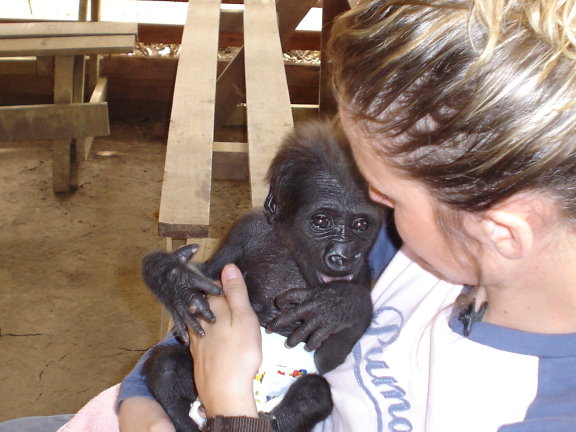
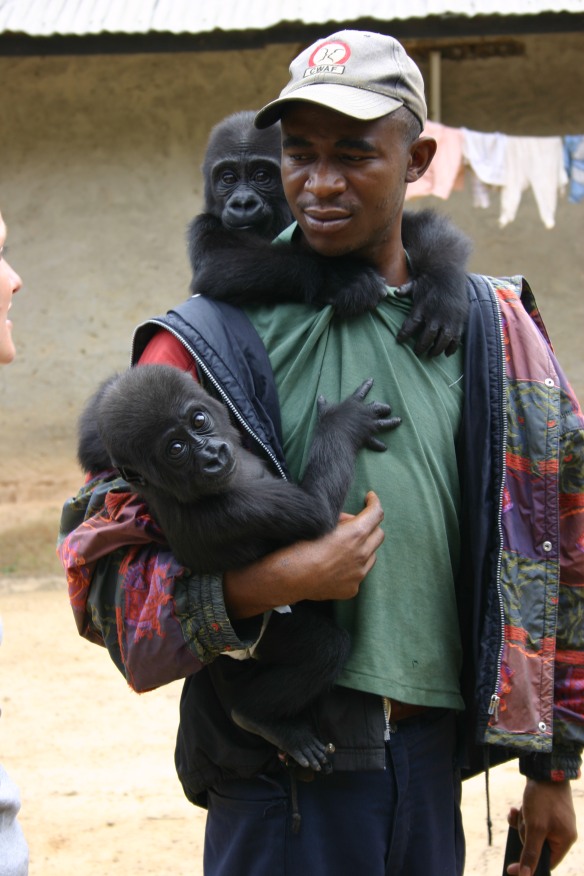
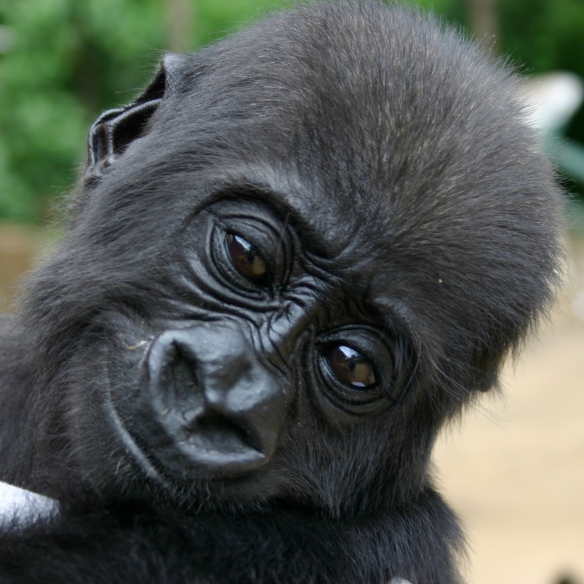
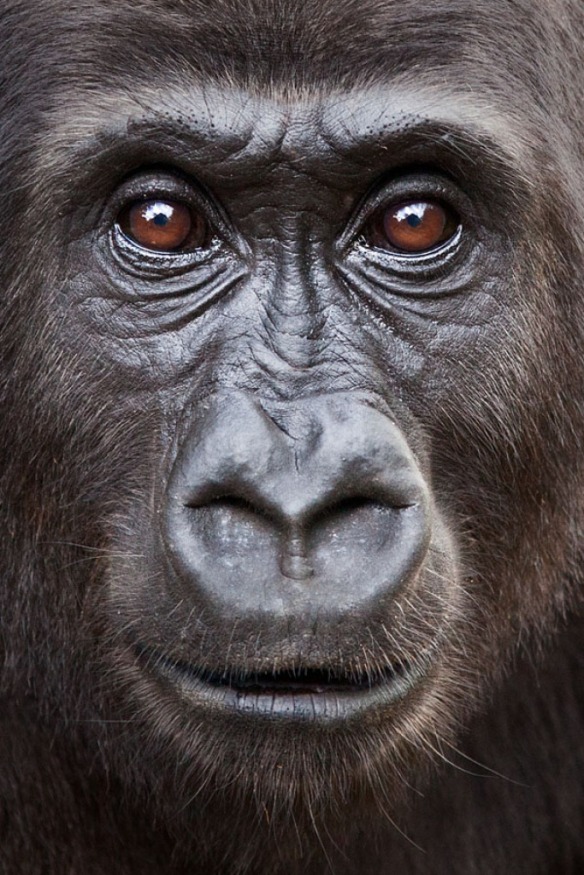
Chief Executive, Ape Action Africa
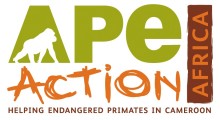
Ape Action Africa is committed to ape conservation in Africa – protecting Cameroon’s great apes through direct action, including rescuing orphaned gorillas, chimpanzees and monkeys, giving them a safe forest sanctuary home where they can live with their own kind.
web: www.apeactionafrica.org
facebook: www.facebook.com/ApeActionAfrica
twitter: https://twitter.com/#!/ApeActionAfrica
and are used with their kind permission


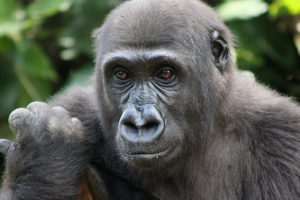
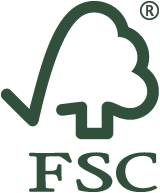
I have adopted both Shufai and Nona and the next one will be Yeba. I'm educated as Bachelor in Nature and Culture dissemination (2006 - 2009) where most of my projects was about bushmeat and pet trade in Cameroon and the consequence of the trade, to make awareness in my class about this problem, in the hope that they would tell others about it.I have talked with a Danish zookeeper who has worked as volunteer in Mefou National Park in 2005 and he said as I also discovered that most people in Denmark don't think and don't care what happens to apes and primates in Cameroon (Africa). I have join something call Ploink where you can donate small amount of money (max £10) a time. I donate 2-3 times a months when I have a little bit of extra money to use. Look at http://www.ploink.co.uk/ if you have a little bit of money you want to donate to Ape Action Africa.:-)
ReplyDeleteHi Dorith
ReplyDeleteYou sound like such a kind and caring person. Thank you for sharing your story with me and encouraging others to help the Ape's
Be Blessed
Jean Robb